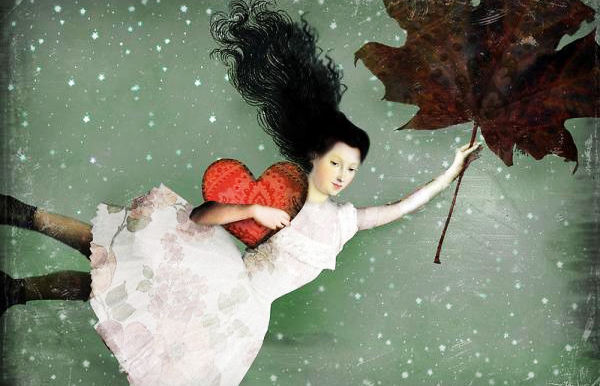melancholy
Sides

Artwork by Nam Chau via Sleek Magazine
In the sixth grade, my predominantly Jewish middle school took a field trip to the local Holocaust memorial. We wandered the small museum, watched a film that gave me that quiet, hollow feeling that tragedies stir within young people expected to understand the scope of them, and traced our fingers over the names of those who died in the camps. White letters on black marble, glinting in the Miami sun. Students pointed to their last names, wondered about relatives, whispered the stories of their grandparents on the bus ride back.
There was a survivor: white haired, elegantly dressed, a keeper of the museum. I wondered why he would devote his life to reliving his almost-death, why he would move across the ocean to restart in a city worlds away, only to spend each day within a stone monument so thick you could almost ignore the shouts and laughs of the beachgoers on the street outside. A stifling bubble of tragedy, stagnation, and I suppose preservation, but why he would choose this? It intrigued me, and discomfited me, too.
It was only when I heard him speak—heard the soft ‘W’s where ‘V’s should have been, and the familiar German cadences—that I mustered the nerve to approach him. Someone I couldn’t at all understand shared the language I had no use for in this city, aside from speaking to my mother. I thought perhaps this gap in comprehension could be closed with words that no one around us could speak.
I don’t remember what we spoke of, only that when he realized I was Austrian, but not Jewish, he said no more to me, and that I felt out of place somehow. Maybe out of time. Five years later, I stood before another monument, another block of black stone with white lettering, this time in Dornbirn, Austria.
I squinted at the names of the soldiers from Dornbirn who had died fighting the war, a war that they didn’t start, but that history would shame them for, and realized that this was the first monument I had seen for the other side. And I wondered then, as I wonder still, how we can blame the soldiers—boys who grew up running the same cobblestoned streets that my family has walked for generations, except then it was called Hitlerplatz, instead of the Martkplatz. And I wondered how we can vilify the language, call it guttural and angry, when so many Americans have only heard it spat from the speeches of Nazi propaganda.
But how could I tell the Holocaust survivor that day in Miami that German was my family language, my understanding, loving, learning, imperfect language? I meant in some small way to step forward from all the hurt that, after all, I did not cause, but his rebuke was a response that I felt viscerally. And then I wonder how I could feel anything else, standing among other people’s memories. Knowing that if the names on the wall could bloom into people, they too would have nothing to say to me.
__
Francesca von Krauland is a Miami-born Cuban and Austrian writer. She is a lover of cappuccinos, cats, and conversations that go on for hours.
More by this writer:
- Traveling Alone With My Thoughts
- To Be Carefree
- Clarity
- Surfaces
- Salad and Sad Outcomes
- Reclaiming My Body After Your Love
- Can I Escape the Person My Family Made Me?
Be the first to write a comment.
Your feedback
